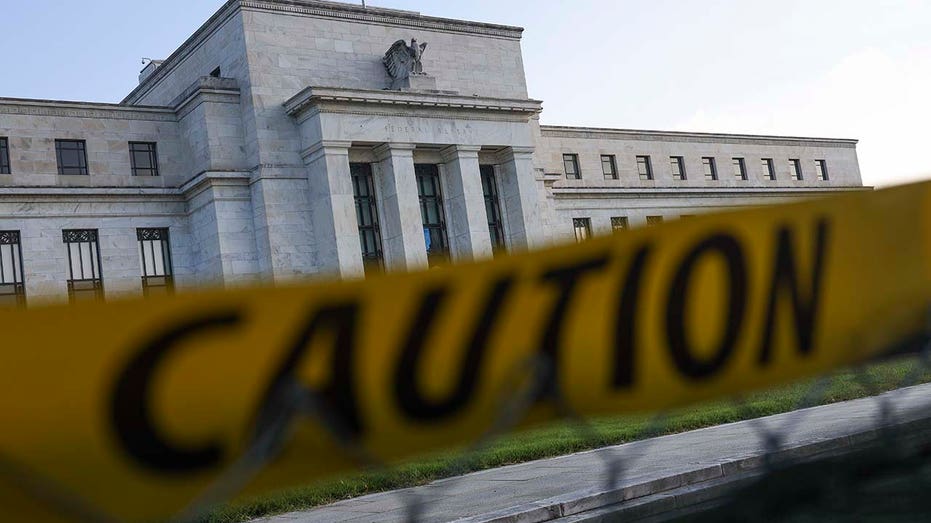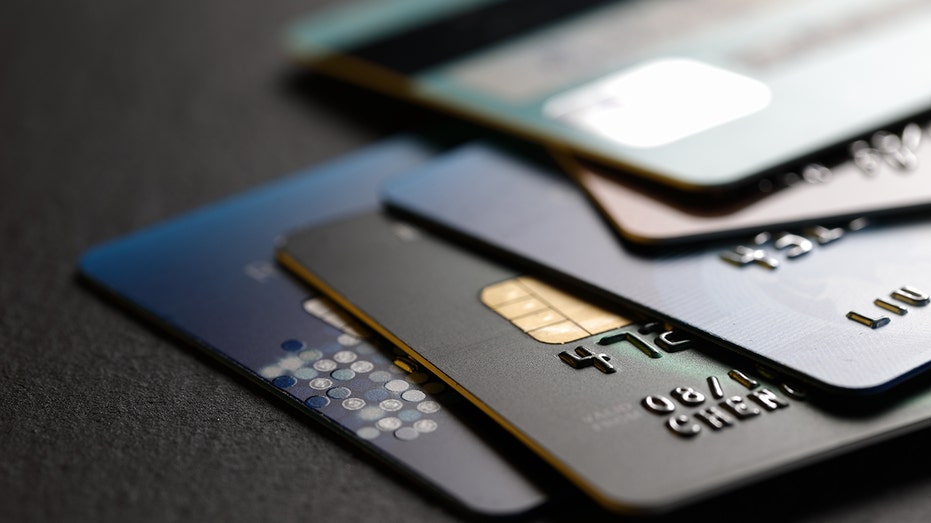Fed rate hike to hit mortgages, credit cards and auto loans
Interest rates are set to soar even higher
Fed has to take 'draconian steps' to accomplish inflation goal: Jeff Sica
Circle Squared Alternative Investments founder and CIO discusses the long-term impact of rate hikes on the U.S. economy on "Varney & Co."
The Federal Reserve is poised to approve another jumbo-sized rate hike this week to rein in the persistently high inflation pummeling Americans' budgets. However, the move will bring added pain to borrowers.
Credit cards, home mortgages and auto loans — already at elevated levels — will climb even higher as the central bank works to slow the economy in hopes of taming soaring prices.

Renovations continue on the Marriner S. Eccles Federal Reserve Board Building in Washington, D.C., on Sept. 19, 2022. (Kevin Dietsch/Getty Images / Getty Images)
Wall Street and economists widely expect Fed policymakers to announce a three-quarter percentage point boost on Wednesday, which would be the third mega-sized 75-basis-point jump in a row and the fifth rate hike for the year.
But the impacts of previous hikes are already evident — and set to worsen.
ART LAFFER CALLS ON FED TO RAISE RATES ‘AS FAST AS THEY CAN’ AMID ‘TOUGH SITUATION’
"Rates are rising at a pace not seen in decades and to levels not seen in years," said Greg McBride, chief financial analyst for Bankrate.com. "Credit card rates are the highest since 1996, mortgage rates are the highest since 2008, and auto loans are the highest since 2012."
Bankrate's latest survey found that the average credit card rate was at 17.96% as of Aug. 31, the highest level seen in decades. That is up 3.5% from the July reading and up 10.8% from the average of 16.21% in August of last year.
Despite paying higher rates, consumers are increasingly relying on credit cards as sky-high inflation drags on. The Federal Reserve Bank of New York reported that credit card debt held by Americans surged by 13% on an annualized basis in the second quarter to $16.15 trillion, representing the sharpest climb since 1999.

Americans are increasingly relying on credit cards as inflation wears on, and they are paying elevated rates on balances. (iStock / iStock)
Car loan rates and balances are both up, too. According to Bankrate, the average auto loan is at 5.07%. At the same time, data from J.D. Power shows the average transaction price for a new vehicle hit a record $45,998 in July and is projected to climb even higher.
Meanwhile, Freddie Mac's Primary Mortgage Market Survey released last week shows the average rate for the benchmark 30-year fixed mortgage topped 6% for the first time since late 2008 to 6.02%, up from 5.89% the week prior.
FED UNLIKELY TO CUT INTEREST RATES UNTIL 2024, GOLMAN SACHS SAYS
"The aim of Fed tightening is to curtail demand in an effort to tame inflation, and when it comes to the housing market, the Fed’s actions are working," said Odeta Kushi, deputy chief economist at First American.
Kushi noted, "Home sales, both new and existing, are falling. Builders have cut back production in response to rapidly declining affordability, and annual house price growth has slowed from the peak of nearly 21 percent in March of this year to 16.7 percent in July, according to data from First American Data & Analytics."

Rising interest rates are cooling the housing market. (AP Photo/John Raoux, File / AP Newsroom)
The combination of elevated home prices and rising rates continue to push more would-be homebuyers out of the market. Realtor.com reported that at today's rates, the median mortgage payment is now at $2,100 — a 66% surge from just a year ago.
With inflation still hovering near a four-decade high at 8.3% despite months of rate increases by the Fed, Americans can expect further hikes to come.
GET FOX BUSINESS ON THE GO BY CLICKING HERE
"The Fed has been delivering a ‘tough love’ message that interest rates will be higher and for longer than expected," said McBride. "The Fed will continue to hike rates until it actually restrains the economy and intends to keep rates at those restrictive levels until inflation is unmistakably on its way to 2%."
FOX Business' Megan Henney and Aislinn Murphy contributed to this report.





















